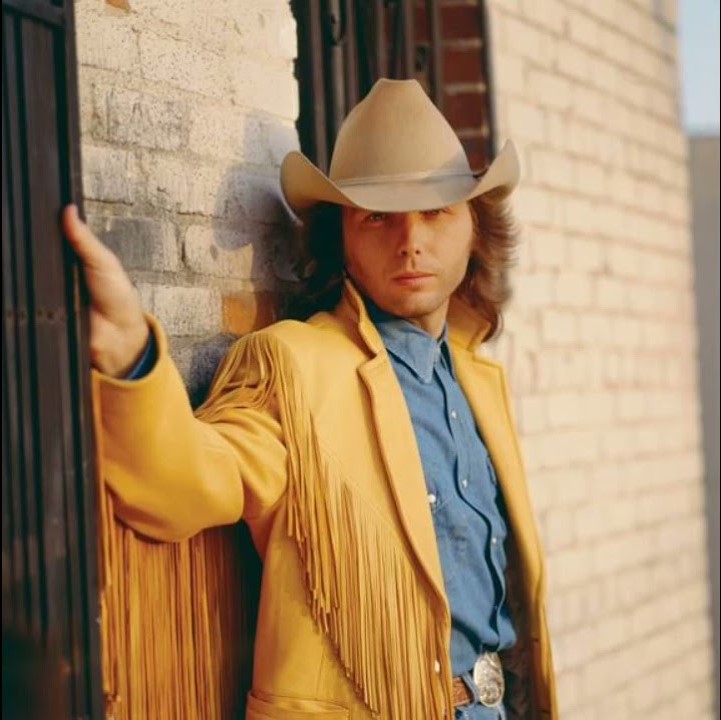
The Enduring Echo of Home: How a Country Ballad Captured the Universal Longing for Roots and Shared Identity
There are songs that merely entertain, and then there are those rare, luminous compositions that reach into the deepest corners of the human heart, pulling forth forgotten memories and stirring an ache for what once was, or what we yearn to reclaim. Dwight Yoakam’s powerful ballad, “I Sang Dixie,” released in 1988 on his critically acclaimed album, Buenas Noches from a Lonely Room, is undeniably one of the latter. This poignant track didn’t just climb the charts; it soared, reaching the coveted No. 1 position on the Billboard Hot Country Singles chart in 1989, cementing its place as a timeless classic and a testament to Yoakam’s profound artistry. More than just a hit, it became an anthem for the displaced, the nostalgic, and anyone who has ever felt the bittersweet pang of longing for home, no matter how far they’ve traveled or how much time has passed.
For those of us who came of age with the distinct sound of Dwight Yoakam ringing in our ears, “I Sang Dixie” is more than just a song; it’s a vivid snapshot of an era, a feeling, a moment in time when country music, with its raw authenticity and lyrical depth, truly spoke to the soul. Yoakam, with his unmistakable Bakersfield sound and a voice that blended the grit of a dusty road with the tender vulnerability of a lonesome heart, delivered a narrative that resonated with an almost primal force. The story behind “I Sang Dixie” is less about a specific biographical event in Yoakam’s life and more about his extraordinary ability to observe, empathize, and translate universal human experiences into compelling musical tales. It encapsulates the profound sense of cultural displacement and the surprising solace found in shared heritage, even in the most unlikely of places.
The song paints a vivid picture of a man, far from his Southern roots, struggling to make ends meet in an unfamiliar, often unforgiving, Northern landscape. He’s “a long way from home” and “cold and hungry,” a stark image that many an older soul can relate to, perhaps from their own youthful migrations or the stories of their forebears. The narrative unfolds with a serendipitous encounter: in a moment of despair, he hears a woman humming an old tune, a melody that instantly transports him back to the sun-drenched landscapes and familiar rhythms of the South. That tune is “Dixie.” In that shared moment of recognition, a bond is forged, a silent understanding passing between two strangers united by a common heritage and a shared longing. The act of the protagonist joining in, singing “Dixie” with her, transcends a mere musical performance; it becomes an act of profound connection, a reaffirmation of identity, and a brief, comforting respite from the cold harshness of their present reality.
The meaning of “I Sang Dixie” runs deep, touching upon themes of identity, displacement, the enduring power of memory, and the solace found in shared heritage. For many, “Dixie” isn’t merely a song; it’s a symbol of a particular way of life, a set of values, a landscape, and a community. When Yoakam’s character sings it, he isn’t just humming a tune; he’s invoking a sense of belonging, a spiritual return to a place that shaped him, even if only in his mind’s eye. It speaks to the universal human need for roots, for a sense of belonging, and how, in moments of loneliness or hardship, the echoes of home can provide an unexpected wellspring of comfort and resilience. This sentiment resonates particularly strongly with older readers, who may have witnessed their own hometowns change, felt the tug of nostalgia for simpler times, or found unexpected connections with others through shared cultural touchstones. Dwight Yoakam, through his masterfully understated yet intensely emotional delivery, transforms a simple country song into a poignant meditation on the enduring power of place and the human spirit’s unwavering connection to its origins. It’s a gentle reminder that no matter how far we roam, a part of us always remains tied to where we began, and sometimes, a familiar melody is all it takes to bring us back home.